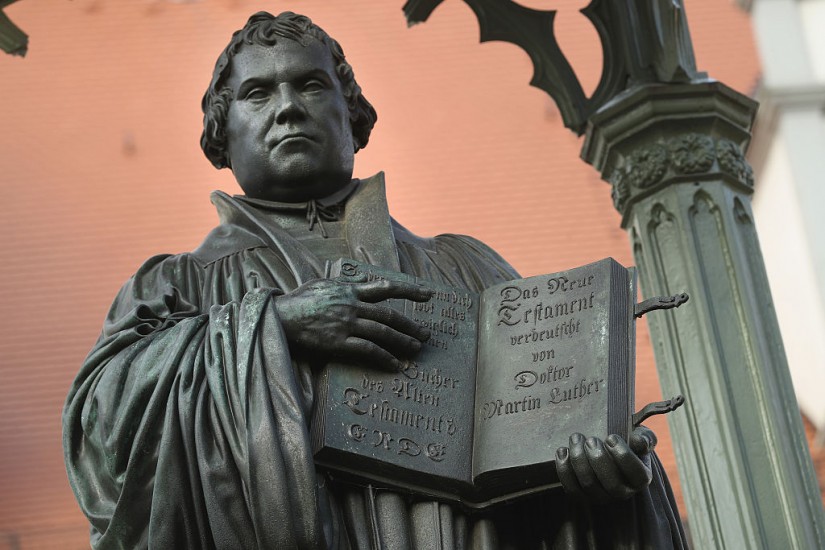It was five hundred years ago, October 31, 1517 in the old Julian Calendar, that Martin Luther submitted his Ninety-Five Theses to Roman Catholic authorities. Nearly all of American history bears the imprint of that act of protest. Luther’s challenge, the protection he obtained, and the reformers he inspired laid the foundation for the Protestant establishments of colonial America.
Vigorous anti-Catholic rhetoric and occasional violence under the Early Republic indicate that lofty Enlightenment ideals checked longstanding prejudice only to a point. Rather, the limited ecumenical impulses of the country’s formative decades cemented the United States as a “pan-Protestant enterprise.” Beginning in the 1840s, mass immigration of Catholic groups reinforced the foreign and allegedly un-American character of the Catholic faith.
Barriers to religious amity, let alone dialogue, remained largely intact through the next century. The experience of the Second World War and suburbanization went only so far. Many scholars emphasized the development of inclusive Judeo-Christian discourse at the height of the Cold War. But the sustained popularity of anti-Catholic polemicist Paul Blanshard and reactions to John F. Kennedy’s presidential bid revealed well-entrenched hostility to “Catholic power.” In 1960, most Americans were still living in religious silos undergirded by fear and insecurity.
Then, unexpectedly, came a deluge. The entire sphere of American religion was, to use Robert Wuthnow’s phrase, restructured. In quick succession, landmark events moved consciences. In 1967, on the 450th anniversary of Luther’s letter, one educator exclaimed, “If anyone had suggested 15 years ago that Protestants and Roman Catholics would be confessing mutual guilt in rending the robe of Christ, I would have said, ‘You’d better go see a psychiatrist.’” But such was the case now. It was a sign of the times that Fordham University, a Catholic institution, and Union Theological Seminary co-sponsored a highly attended forum to mark the anniversary. Three months later, Presbyterian spokesman Eugene Carson Blake and Vatican representatives announced a common venture, the Joint Committee on Society, Development, and Peace, to be housed by the World Council of Churches in Geneva and chaired by Jesuit George H. Dunne. How did it all happen?
